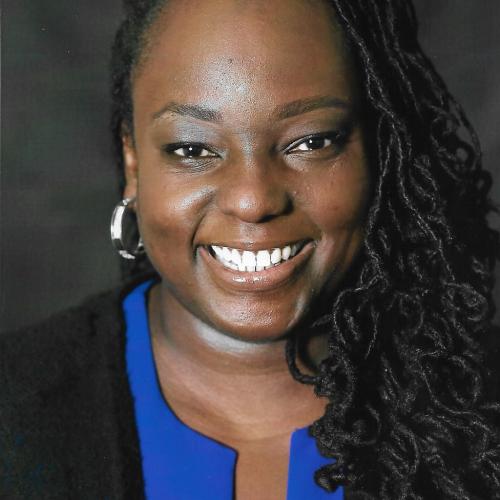PHD
Curriculum and Instruction
Indiana University
2013

Denisha Jones, Ph.D., JD, is the Executive Director of Defending the Early Years. She is a former kindergarten teacher and preschool director who spent the past 19 years in teacher education. Denisha is an education justice advocate and activist working with various grassroots organizations to dismantle the neoliberal assault on public education. She is a part-time faculty member in the Art of Teaching program at Sarah Lawrence College and the School of Education at Howard University. Since 2017, she served on the steering committee for the national Black Lives Matter at School Week of Action. Her first co-edited book, Black Lives Matter at School: An Uprising for Educational Justice, was published in December 2020 by Haymarket Books.
Dr. Jones’s career also spans advocacy and legal work: she has interned with organizations focused on education, civil rights, and social justice, and she brings that orientation to her leadership in the early childhood field.
Curriculum and Instruction
Indiana University
2013
University of the District of Colombia
2018
Traditional notions of civic education often introduce privilege and reproduce Eurocentric notions of citizenship. Proponents of cultural citizenship champion Black cultural knowledge, and critical race pedagogies to help marginalized individuals, including students of color, actualize their agentic selves. This manuscript presents three vignettes to demonstrate how teachers implemented the Black Lives Matter at School’s 13 Guiding Principles to develop Black cultural citizenship with students. Three salient aspects emerged: (1) the need for students to be active contributors in the current movement for Black liberation; (2) a call to support students unlearning and relearning Black history; and (3) instruction that provides opportunities for students to recognize and challenge systems of oppression.
Teacher-Advocates Respond to ESSA: “Support the Good Parts—Resist the Bad Parts”
Although researchers consider them powerful, teacher policy advocates are among the least studied stakeholders in U.S. public education reform today. Although plenty of attention has been given to the impact of policy on teachers' work, little research explores how teachers interpret or interact with policy. Drawing on the work of Spillane, Reiser, and Reimer (2002) on teachers' policy implementation and Coburn's (2001) work on teachers' collective sense-making of policy, this qualitative study examines the different ways in which five teachers interpreted, translated, and enacted a response to ESSA. The findings describe how contextual factors influence teachers' relationship with education policy: (a) structural supports for grassroots involvement via social networks are instrumental in mobilizing teachers, and (b) unless a more bottom-up approach is taken that enables teacher agency, sense-making, and advocacy, top-down school policies will continue to hold limited promise. The paper concludes with implications for understanding how teachers are indeed policy advocates.
Chapter 10: Enacting cultural citizenship education for Black liberation: A dream for social studies education in Critical race theory and social studies futures: From the nightmare of racial realism to dreaming out loud
The authors engage critical race theory (CRT) and its many branches and offshoots to better understand the permanence of racism in the teaching of social studies.
Chapter 3: Resisting neoliberal reforms in early childhood education: Play pedagogy as the antidote to GERM in The Commodification of American Education Persistent Threats and Paths Forward
This chapter explores how a pedagogy of play can support teachers in resisting the neoliberal assault on public education and support thriving in early childhood.
Black Lives Matter at School: An Uprising for Educational Justice
Contributors include Opal Tometi, who wrote a moving foreword, Bettina Love who shares a powerful chapter on abolitionist teaching, Brian Jones who centers Black Lives Matter at School in the historical context of the ongoing struggle for racial justice in education and prominent teacher union leaders from Chicago to Los Angeles and beyond who discuss the importance of anti-racist struggle in education unions. The book includes essays, interviews, poems, resolutions, and more from educators, students and parents around the country who have been building Black Lives Matter at School on the ground.